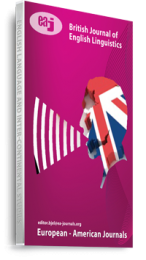This study is set up to investigate the impact of the morphological and word-formation instruction processes on Saudi EFL students’ vocabulary knowledge. The New Vocabulary Level Test (NVLT) and the Morphological Awareness Test (MAT) were used to measure the extent of the words-formations process that can be received by Saudi EFL learners; and their ability to use these words-formations processes in a context appropriately. About two groups control and experimental (each had 20 female participants) from the first level, the descriptive analytical approach was used. The experimental group was taught using explicit word-formation processes theory, whereas the control had no specific paradigm. The results showed that it is beneficial to concentrate on word-formation processes instructions using explicit teaching methods in EFL classrooms to raise students’ morphological awareness and improve their vocabulary knowledge capacity. Therefore, the study revealed that using an explicit teaching method, especially for the Arab EFL learners’ classes can make a difference and should be added to the EFL classroom.
Keywords: Applied Linguistics, Morphology, Semantics, Vocabulary Knowledge, word-formation

